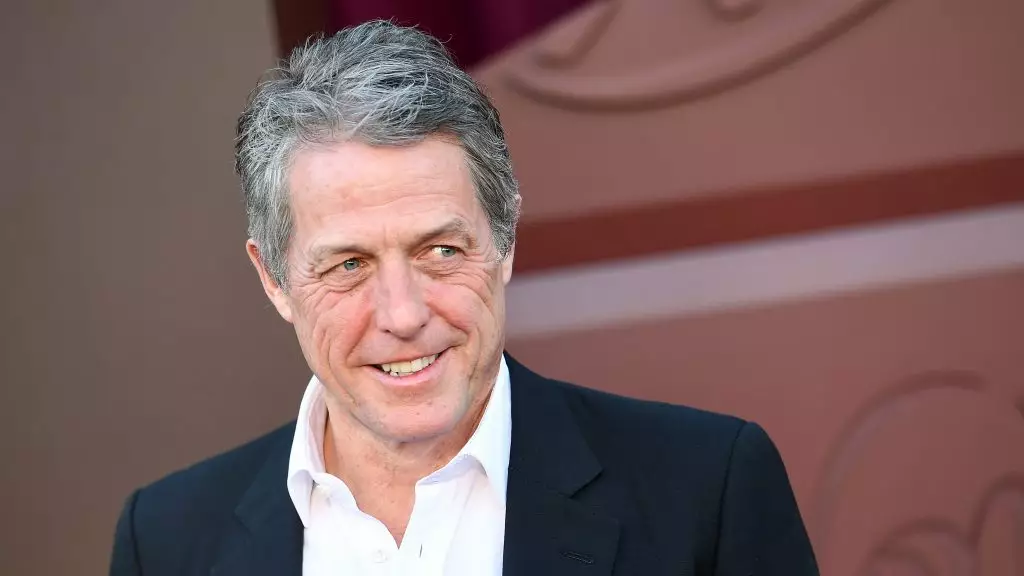Hugh Grant has long been one of the most recognizable faces in British cinema, known for his charming persona and roles in romantic comedies. However, following the lackluster performance of his 2009 film *Did You Hear About the Morgans?*, Grant found himself at a crossroads, feeling “completely marooned.” It was through his collaboration with the Wachowski siblings on the ambitious film adaptation of *Cloud Atlas* that he experienced a significant revival in his career. His reflections on this pivotal moment reveal not only how external factors influenced casting decisions but also how the outcome reshaped his artistic trajectory.
In discussing the opportunity offered to him by the Wachowskis, Grant candidly acknowledged that the request for recognizable names likely played a role in his booking. He remarked that despite being not the most desirable choice, he was grateful for the chance, even if it seemed to come with a hint of condescension. This anecdote highlights a broader theme in Hollywood’s approach to diversification, where established names are often prioritized to satisfy market expectations, sometimes at the expense of more creative casting practices.
*Cloud Atlas* is a tapestry of interwoven narrative threads, spanning centuries and genres, showcasing how the actions of individuals can span lifetimes. Each of Grant’s six roles in this film presents rich opportunities to explore antagonistic characters. The film, based on David Mitchell’s 2004 novel, has been praised for its ambition but criticized for some casting decisions, especially the choice of several white actors to portray East Asian characters. This juxtaposition raises questions about representation in filmmaking, prompting a necessary dialogue about ethics in artistic expression.
Grant, reflecting on his shifting career, noted his early enthusiasm for playing eccentric characters. Early on, he enjoyed crafting performances that engaged audiences through humor and creativity—an aspect he feels is often lost in the archetypal rom-com roles he fell into. He expressed regret that his career trajectory had led him away from these fun characters into the predictable confines of romantic leads. This shift emphasizes how typecasting can limit an actor’s range, stifling not only their creativity but also their ability to connect genuinely with their audience.
Discussing his recent roles, Grant remarked on how his career has taken a turn. He has increasingly found himself cast as the villain—a character type that allows for more intricate storytelling. He shared insights into what makes a compelling antagonist, emphasizing that depth and complexity are crucial. “On a big screen, over 90 minutes… it’s got to have the quivering jelly,” he stated, illustrating the importance of a backstory that anchors the villain in reality rather than relying solely on clichés like mustache-twirling. This deeper exploration of villainy provides a richer canvas for Grant to display his talents, revealing layers of his acting prowess that had previously remained untapped.
Selective Collaborations and Artistic Standards
Beyond the roles he has chosen, Grant explained his selective approach toward the directors and projects he takes on. He expressed a commitment to quality and a desire to align himself with filmmakers who possess creative autonomy. Turning down roles that came with corporate pressures highlighted his dedication to artistic integrity. For Grant, the process involves direct communication with directors, revealing not just his level of preparedness but also his desire for assurance regarding the project’s authenticity and independence.
His actions reflect a larger trend in the industry where artists seek out projects that allow for creative freedom, indicating a shift towards more meaningful storytelling. This commitment to quality over quantity ultimately strengthens the overall cinematic experience, promoting films that resonate on a deeper emotional level.
Hugh Grant’s career journey epitomizes the evolving landscape of cinema, demonstrating how risks and collaborations can lead to rejuvenation. His experiences with the Wachowskis and in *Cloud Atlas* underline a key truth in the world of acting: the most profound transformations often arise from the willingness to explore new territories and embrace complex characters. This continuous journey away from typecasting towards a more diverse portfolio showcases not only his versatility but also his commitment to meaningful storytelling. As Grant moves forward, one can only wonder what new and unexpected roles await him on the horizon.


Leave a Reply